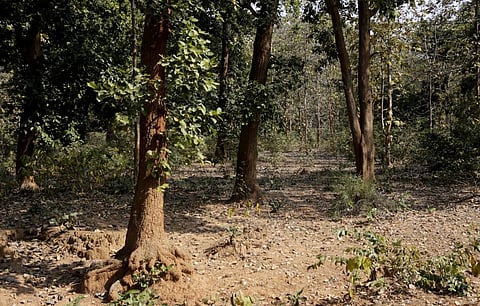

The contentious Forest (Conservation) Amendment Bill, 2023 was passed by the Lok Sabha within 20 minutes of it being tabled in the Parliament on July 26, 2023.
The bill saw widespread opposition from environmentalists, scientists and other stakeholders since the draft was presented in the Lok Sabha in March earlier this year.
Terming the bill as ‘progressive’ on the Parliament floor, Union Minister of Environment, Forest and Climate Change Bhupender Yadav stated the bill is crucial for meeting Net-Zero emissions and creating a carbon sink to sequester 2.5-3 billion tonnes of carbon dioxide-equivalent by 2030 under the Nationally Determined Contribution targets.
The existing Forest Conservation Act (FCA), 1980 has ambiguity in the definition of forest and the bill aims to bring clarity to the same, claimed Yadav. “The definition of forest followed at present prevents development works,” he said, citing an example that a government school building in Jharkhand falling in a forest area requires forest clearance permission even to construct toilets.
At present, the court intervenes in many cases, considering the requirement of forest clearances as the definition is not clear, but once the clarity is sought, the bill serves as a milestone to resolve forest land issues, Yadav added.
Timely amendments are required considering the public utility, the minister further said. He also pointed out that the bill was drafted taking considerations and views of all stakeholders across the country.
“A memorandum of 1,309 entities was received and was presented to the Joint Parliamentary Committee for approval,” he said.
Yadav reasoned that the provisions stated in the amendment bill will ensure connectivity in border areas, create road networks around international borders for strategic reasons and increase road connectivity to interior regions of the country.
“The amendments and new provisions will help to provide a dignified life to every person of India,” he added.
Yadav was referring to the amendments that seek exemption from clearances up to 100 kilometres in international borders for “strategic projects of national importance” or land five to 10 hectares in size.
The amendments also seek clearances in left wing extremism areas. He asserted that states like Chhattisgarh and Telangana, which have naxalite presence, hinder development as no permissions are cleared. But the new amendments will help provide roads and schools to tribal areas, he said.
Forests land transformed into non-forest areas after 1980 will help increase compensatory afforestation to increase carbon sink, the minister added
Justifying the name change from Forest Conservation Act to Van (Sanrakshan Evam Samvardhan) Adhiniyam, which translates to Forest (Conservation and Augmentation) Act, Yadav said the name is closest to the native language of people across India.
On amendments seeking forest clearance up to 0.10 hectares along rail lines or public roads under the possession of the central government, Yadav claimed the amendments will help increase infrastructural development to the residents.
Despite provisions under social forestry, people fear private plantations as they may be termed as forests, due to which India has to import teak and other wood, the Union minister said. “The North East region can play a crucial role in increasing agroforestry, and the bill will help with reforms,” he said.
The minister also said the bill will help increase surveys in science and technology by enabling surveys of earthquakes, mining and others that will assist in the economic development of the country.
The changes in the bill will help create rescue centres for wildlife in protected areas. “The bill is progressive and inclusive of all parties’ considerations,” Yadav concluded.
The bill saw arguments from other members who questioned the uncertainty over unclosed forests and raised concerns that the bill was in conflict with the Forest Rights Act.
Ritesh Pande and Ram Shiromani Verma from the Bahujan Samaj Party, Uttar Pradesh contested that the bill will endanger indigenous communities.
Refuting the concerns, Yadav said that the bill does not threaten the tribals and forest dwellers, but instead offers development and services to the respective populations of the region.
“The bill does not contradict the FRA, but supplements it,” he replied. The bill was passed after the majority voted in its favour.